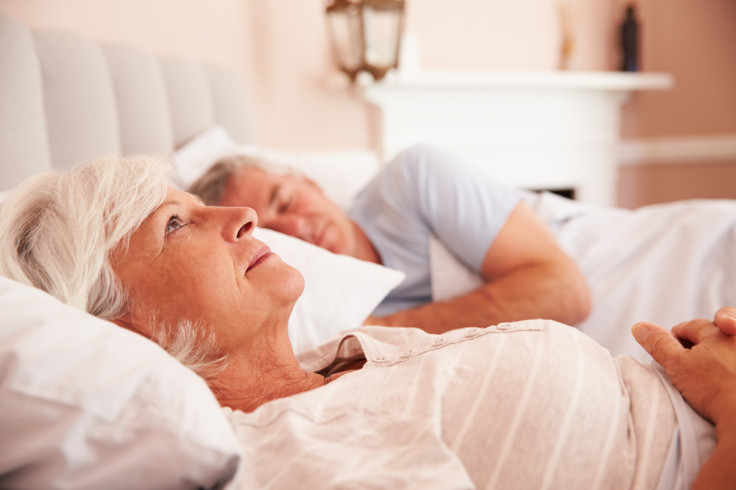No sleep, no sex - Menopausal women with sleep problems are less satisfied with their sex lives
Menopausal women often report sleep problems and this can have a detrimental impact on their sex lives.

During menopause, women who suffer from sleep disturbances may find this has a negative effect on their level of sexual satisfaction. Sleeping only a few hours at night increases their likelihood of being dissatisfied with their sexual activity.
Menopause is a time of major physical, psychological and hormonal upheaval for women. It often goes hand in hand with an array of sleep problems, including insomnia and sleep-disordered breathing, which can on the long-term lead to the development of depression and anxiety.
During the transition to menopause and during menopause, sexual functioning and satisfaction are commonly affected. Many women report a decrease in sexual motivation, satisfaction and drive.
However, the extent to which this is linked to sleep disturbance remains unclear. To date, the links between sleep and sexual function and satisfaction in postmenopausal women are under-studied.
To find out more, scientists have analysed the data of thousands of menopausal women, describing the relationship between sleep length and quality with sexual activity and satisfaction.
The findings are now published in Menopause, the journal of The North American Menopause Society.
Less than 7 hours a night
The scientists used data from 93,668 menopausal women aged 50 to 79 years. This data had been collected as part as the Women's Health Initiative Observational Study and included information about sleep duration and sexual activity.
Nearly a third were diagnosed as having insomnia. Only about half reported sexual activity in the last 12 months while 56% said they were satisfied with their current sexual activity.
Analysing all the data, the researchers discovered that higher insomnia scores were associated with lower odds of reporting sexual satisfaction. Furthermore, women who reported shorter sleep duration – less than seven to eight hours a night – were less likely to have had sex in the last year and to report being satisfied with their sexual activity.
This association between poor sleep and poor sex life remained even after accounting for other causes such as depression.
While the correlation between poor sleep and poor sexual satisfaction is robust, the study does not identify the reasons for why sleep problems can result in reduced sexual function and dysfunction.
"There are lots of reasons why lack of sleep could be associated with decreased sexual function, but this study does not point to a specific cause. Potential pathways include the fact that when people don't sleep, they are more irritable and they get on less with each other - reducing the likelihood of engaging in sexual activity", Wendy Troxel,Senior Behavioral and Social Scientist at the RAND corporation, whose research focuses on understanding the links between close relationships and sleep, told IBTimes UK.
Sleep, sex and relationship
In the last decade, more and more studies have focused on the link between sleep disturbances and relationship problems and how they can co-occur. Scientists have found that sleep length and quality does not only impact sex life, it can also affect other aspects of a relationship – just like relationship problems and break-ups can in turn result in sleep deterioration.
"There has been a greater attention paid in general to sleep because people have realised that it affects everything, from health to economy as well as relationships", Troxel said.
"Sleeping is a behaviour that in adults is often shared among partners. Traditionally, researchers have studied sleep in individuals, but this is not how we actually engage in the behaviour. There is a real interest now in taking into account relationship situation and social context when studying sleep".
Research she has led and published in Sleep Medicine Reviews has supported the hypothesis that "relationship quality is importantly implicated with sleep and vice versa". Troxel and colleagues have also found that women in happy marriages are less likely to have insomnia and those in stable relationships have fewer sleep disturbances than women with no partner or who undergo a relationship transition.
© Copyright IBTimes 2025. All rights reserved.






















